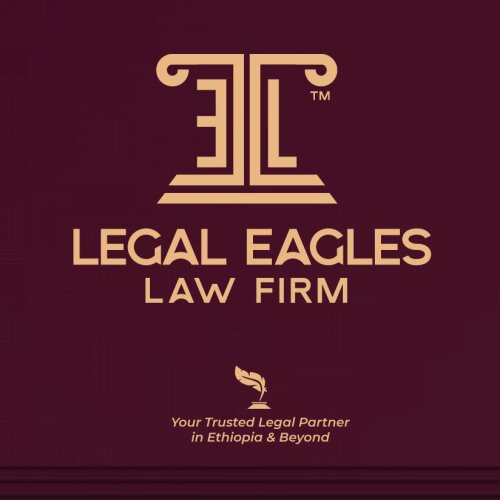Best Franchising Lawyers in Ethiopia
Share your needs with us, get contacted by law firms.
Free. Takes 2 min.
Or refine your search by selecting a city:
List of the best lawyers in Ethiopia
About Franchising Law in Ethiopia
Franchising in Ethiopia is an emerging sector that offers business opportunities for both local and international entrepreneurs. The concept involves franchisors allowing franchisees to operate under their brand while adhering to specified operational standards. This approach is still developing in Ethiopia, with increasing interest from various industries, including food and beverage, retail, and services. The Ethiopian legal system provides a framework for franchising that includes contract law principles and commercial code regulations, though a specific franchising law has yet to be enacted.
Why You May Need a Lawyer
There are several reasons why one might seek legal assistance in the realm of franchising in Ethiopia:
- Contract Review: Ensuring that franchising agreements are fair and compliant with local laws.
- Negotiations: A lawyer can facilitate favorable terms and protect your interests during negotiations.
- Regulatory Compliance: Understanding and adhering to business laws, taxation requirements, and commercial practices.
- Intellectual Property Protection: Safeguarding trademarks and brand reputation.
- Dispute Resolution: Addressing conflicts between franchisors and franchisees efficiently.
Local Laws Overview
The franchising environment in Ethiopia is primarily guided by the following local laws and regulations:
- Commercial Code of Ethiopia: It outlines general business laws that apply to franchising agreements.
- Investment Proclamation: Provides guidelines for foreign investment, which is crucial for international franchises.
- Contract Law: Governs the agreements between franchisors and franchisees.
- Trade Competition & Consumer Protection Proclamation: Ensures fair competition and consumer rights protection.
Frequently Asked Questions
What is franchising?
Franchising is a business model where a franchisee is granted the rights to operate a business under the name and system of an established brand, known as the franchisor.
Is there a specific franchising law in Ethiopia?
No, Ethiopia does not have a dedicated franchising law. Franchising activities are governed under general business laws, particularly those related to contracts and commerce.
Can a foreign franchisor enter the Ethiopian market?
Yes, foreign franchisors can enter the Ethiopian market, but they must comply with investment regulations and potentially require governmental approvals.
What are the common elements of a franchise agreement?
Key elements include the duration of the franchise, fees and royalties, operational guidelines, marketing and training support, and terms of renewal or termination.
Are there any restrictions on transferring a franchise license?
Yes, transferring a franchise license often requires approval from the franchisor, and terms will be specified in the franchise agreement.
How are disputes typically resolved in franchising relationships?
Disputes can be resolved through negotiation, mediation, arbitration, or litigation, depending on the terms outlined in the franchise agreement.
What role does intellectual property play in franchising?
Intellectual property, including trademarks and proprietary systems, is central to franchising, ensuring the brand identity and operational standards are maintained.
How is the profitability shared in franchising operations?
Profitability is typically shared through a combination of upfront franchise fees, ongoing royalties, and sometimes a share of net profits, as agreed upon in the contract.
Are there any mandatory trainings for franchisees?
Most franchisors provide mandatory training to franchisees to ensure consistency in service and operations across all franchise units.
Is there a governing body for franchising in Ethiopia?
While there is no specific franchising authority, business registrations and compliances are overseen by the Ministry of Trade and Regional Integration.
Additional Resources
For more information and assistance on franchising in Ethiopia, you may consider the following resources:
- Ministry of Trade and Regional Integration: Manages trade laws and regulations.
- Ethiopian Investment Commission: Provides guidelines for foreign investments.
- Ethiopian Chamber of Commerce and Sectoral Associations: Offers networking and support services for businesses.
Next Steps
If you are considering franchising in Ethiopia and require legal assistance, consider taking the following steps:
- Consult a Legal Expert: Seek advice from a lawyer specializing in commercial law and franchising.
- Conduct Thorough Research: Gather information about potential franchisors and market conditions.
- Prepare Documentation: Ensure all required documents and agreements are organized and compliant with legal standards.
- Engage with Local Authorities: Communicate with relevant government bodies to understand legal requirements and assistance.
Lawzana helps you find the best lawyers and law firms in Ethiopia through a curated and pre-screened list of qualified legal professionals. Our platform offers rankings and detailed profiles of attorneys and law firms, allowing you to compare based on practice areas, including Franchising, experience, and client feedback.
Each profile includes a description of the firm's areas of practice, client reviews, team members and partners, year of establishment, spoken languages, office locations, contact information, social media presence, and any published articles or resources. Most firms on our platform speak English and are experienced in both local and international legal matters.
Get a quote from top-rated law firms in Ethiopia — quickly, securely, and without unnecessary hassle.
Disclaimer:
The information provided on this page is for general informational purposes only and does not constitute legal advice. While we strive to ensure the accuracy and relevance of the content, legal information may change over time, and interpretations of the law can vary. You should always consult with a qualified legal professional for advice specific to your situation.
We disclaim all liability for actions taken or not taken based on the content of this page. If you believe any information is incorrect or outdated, please contact us, and we will review and update it where appropriate.
Browse franchising law firms by city in Ethiopia
Refine your search by selecting a city.

















